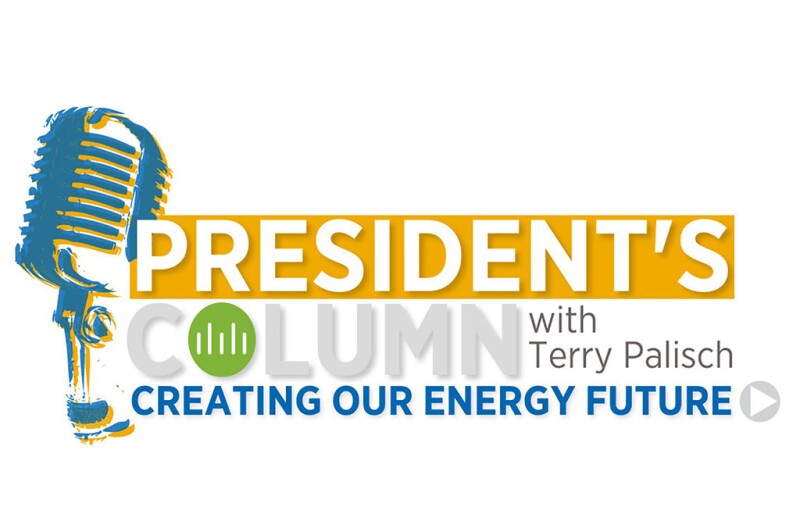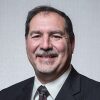In this inaugural podcast episode and transcript, we discussed Palisch’s views of the challenges facing our industry and SPE members, his outlook for our industry, and what his goals will be during his presidency.
Welcome to the Society of Petroleum Engineers podcast with 2024 President Terry Palisch. I’m Pam Boschee, director of SPE magazines, and Terry joins me today to share his thoughts about being named president with the official passing of the baton from 2023 President Med Kamal at our Annual Technical Conference and Exhibition (ATCE) in San Antonio in October.
Terry is the vice president of technology and engineering at Carbo Ceramics in Richardson, Texas. He began his career with Arco during which he served 10 years in Alaska and 4 years as a senior petroleum engineering advisor in Algeria. He joined Carbo in 2004, and in his current position leads a team of technologists developing and championing new products and services and advising clients in completion and fracture optimization.
He has been an SPE member for more than 40 years, serving in various roles including past chairman of the SPE Dallas Section. He has been the past chair of the ATCE technical program and the former SPE Completions Technical Director. He is an SPE Distinguished Member and received the award for Distinguished Service as well as the SPE Mid-Continent Regional Completions Optimization and Technology Award and the Regional Service Award. In 2013 he was named one of the top 15 best engineers by the Texas Independent Producers and Royalty Owners Association, and in 2015 he was named the SPE Dallas Section Engineer of the Year. He has authored more than 50 SPE technical papers and holds several patents.
He holds a bachelor’s degree in petroleum engineering from the University of Missouri Rolla, now the Missouri University of Science and Technology, and was recently recognized as a distinguished alumnus.
Welcome Terry, it’s a pleasure to talk with you today.
Thank you Pam, it’s fun to be with you. I’m excited to kick off this series, and hopefully, the members will find it useful. Again, I’m excited to be here and talk to you.
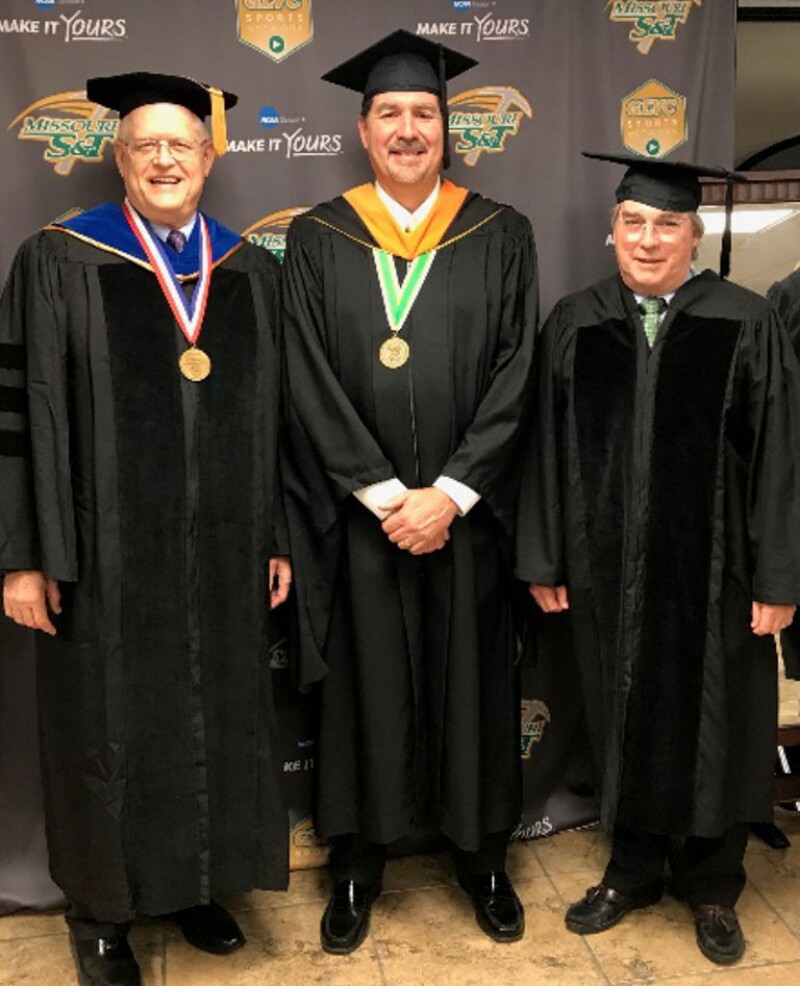
To help our members learn a bit about you and about your background, let’s begin with key issues you’ll emphasize as the 2024 SPE President. You’ve selected “Creating Our Energy Future” as your theme. Can you tell us about it?
Great question. Over the course of the last 8 months or so, as incoming president, I’ve had the distinct privilege to meet with multiple sections and student chapters. I’ve seen celebrations, such as leading opening sessions at SPE/IADC International Drilling Conference and Exhibition’s 50th anniversary, and hosted awards presentations.
One of the things really exciting to me is that our members and our students are excited about the petroleum engineering profession, and they’re excited about our industry. But at the same time, they also recognize that as things change, oil and gas is going to be critical to the future. They want to know what their place is going to be, particularly the younger members, and where we are headed.
I chose “Creating Our Energy Future” as my theme. I thought about “your” and “mine,” but it’s really “our” energy future. It has a twofold meaning to me.
First, you and I and the membership want to create our energy future, we want to understand how we’re going to thrive and excel, and how we can participate. We do that via our SPE membership.
I liken SPE membership to a gym membership. It’s been very impactful to my professional career, and I think that it’s important for the members to treat their SPE membership like a gym membership. The gym offers many things, and you’re working on your personal well-being and your health. Similarly, SPE allows you to work on your professional development and professional well-being.
So, the first part of creating our energy future is our future as members in the oil and gas industry and how we can thrive, and how does SPE help.
The second part is SPE’s future, our future as as a society. So, of course, the SPE Board of Directors continues to work on that. Mark Rubin, former CEO, set a wonderful foundation for us, and now we have Simon Seaton coming on as our new CEO. I’m excited about where we go next—how we continue to grow our membership, and how we continue to meet our members’ needs. It’s going to take not only our ideas, but it’s also going to take members’ ideas and input from everybody because we are a member organization and member society. We are here as SPE to meet the needs of the members.
To recap the intent of my theme, Creating Our Energy Future: How do we thrive in the industry, in our career, but then also how does SPE move ahead.
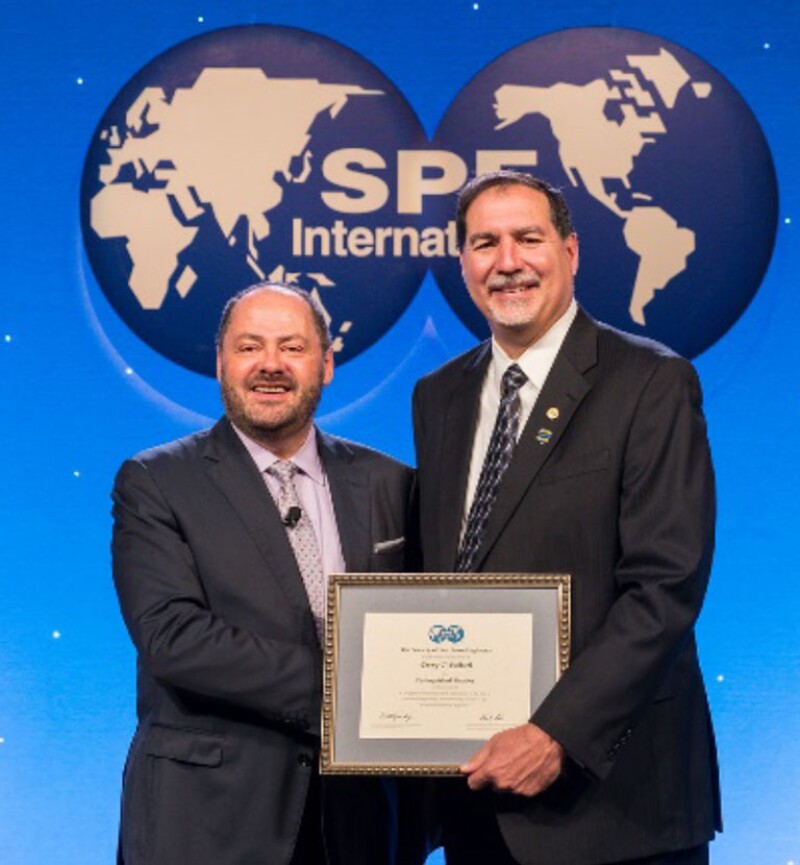
Along the lines of looking toward the energy future, another component is that the SPE Board of Directors approved our Strategic Plan this past January. It also looks ahead at SPE’s role in approaching the future and the industry. Could you share a bit about the process behind developing it and some of the key takeaways?
For those who aren’t aware, every 3 to 5 years the Board and senior staff develop a strategic plan, reassessing the industry and SPE’s role in it.
This particular plan was started in roughly Q3/Q4 last year, and towards the end of the year and beginning of 2023, we rolled it out. The process starts with an assessment of the current environment—and not just the current environment we’re in, but also the current environment that the members find themselves in. Quite a bit of data gathering and information gathering from the membership takes place.
This time around, we found members are concerned about five things. First, how are we as technologists going to continue to produce more and more oil and gas that’s going to be needed? Second, how are we going to implement new technologies … what are the new technologies that will help us do that? Third, what is our place in the energy transition? Fourth, how do we continue to attract students and others to our profession? And fifth, concerns over our industry’s image with the public.
Nothing was surprising, and maybe some of it’s not even new, but it’s always good to ground yourself in the context of the current environment. From there, we developed and looked at the mission. Do our mission, vision, and core values still in place meet the needs of the members?
We made a reasonable modification to our mission this year. Last time we went through this process, we added a few words; this year we somewhat reorganized, but it’s still generally the same. We remain committed to disseminating technical information and helping our members excel in their profession.
And then finally, the meat of the Strategic Plan becomes identifying the goals and the objectives for implementing our goals. We identified our key stakeholders, and the goals have to be associated with them. Those key stakeholders are our members first and foremost, but also our member’s companies, our sponsors and advertisers, our educators, our academia, and then lastly, our external stakeholders.
As we put together our goals, we have those stakeholders in mind. I’m not going to go through all the goals, but each of the goals has objectives that were identified as critical and that need to be done now. Others were to be done soon, and then intermediate to be done later. We are actually in the middle of working through the implementation of the action items as we speak, and we will continue to be working on them. Again, it’s a 5-year plan, so it will continue to evolve over time. In the end, it’s the SPE side of Creating Our Energy Future.
And I’d like to add here that the Strategic Plan is available on the SPE website for anyone who would like to read more about it.
Terry, what would you say to a student who asks, “Why should I go into the oil and gas industry?” or “Why should I go into the energy industry?” You have weathered many up and down cycles over your years in the industry … what would you have to offer to a student’s question about that?
Great question. First, I would say that every year our world sets new records for energy usage. We continue to grow the amount of energy that we need, and that’s going to continue to grow. We have continuing pressure for more energy as the population increases, as the underdeveloped world advances, and as the developing countries continue to grow. As they strive to meet the energy needs of their populations, energy needs are going to continue to grow, and currently 80% of the energy is provided from fossil fuels. That number has been pretty constant over the past decades, and it’s really not going to change anytime soon.
In fact, if you look at various projections, you’ll see that the incremental energy needed is going to be supplied by renewables and non-oil and gas, non-fossil fuels, but fossil fuels will still be providing the baseload need. Oil and gas are going to be critical for the future.
That said, we have to be able to not only provide affordable and reliable energy, but also decarbonized. So, there’s the opportunity for our industry, and as I talk to young students and young members, I try to explain to them that they are the future. Those entering our workforce need to understand how to stay abreast of the changing technologies, whether it’s in oil and gas extraction or decarbonization.
It’s important to do that, and I hope they’ll see that their SPE membership and its offerings can help them meet those needs. They may not need to be experts in everything, but SPE enables them to understand enough about topics that are important to our day and give them a better understanding about deploying some of these other technologies.
I think that’s the advice I’d give. I try to encourage everybody to do four things: learn, participate, volunteer, and lead. Learn as much as you can, whether it’s papers or attending conferences or webinars. Participate in your local section. Volunteer. You’ll find if you do those things, you’ll find yourself leading, which is what I got out of SPE, as well.
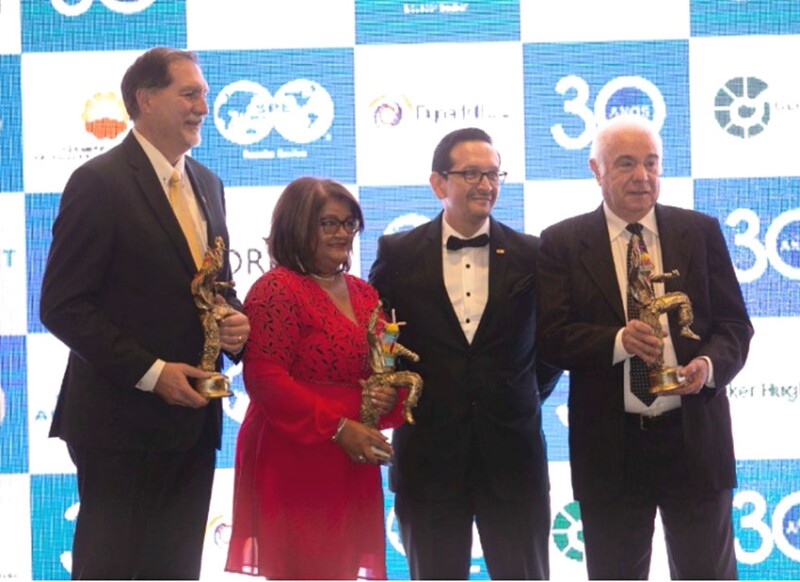
Thank you for that. What other thoughts would you like to share, perhaps some points that we haven’t touched on that are particularly important to you or that you would like to emphasize to the membership, our students, and our younger members, too?
Let me start by going back to the gym membership analogy. We all get different things out of SPE. If we go back to my career and what I’ve gotten out of SPE, it’s been critical not only for the technical side of things and learning and improving my technical expertise, but it’s also been important to my soft skills. Writing papers, presenting papers, being a leader, and volunteering have all helped me.
I’d like to tell younger members that while we all would like to be CEO someday, we’re not all going to be. For me, SPE has provided professional development. I was leading the Dallas Section long before I was a vice president at Carbo. And I think that those experiences have helped me.
Going back to the gym membership, I think we joined health clubs probably early in our lives for fun and later in life because the doctor told us we had to. Regardless, we do that for multiple reasons. I might go to the spin class, someone might go to swim or to a yoga class, but the bottom line is we’re doing it for physical well-being.
I tend to think treating your SPE membership in the same way is what I want to impress upon people over the next months as we record these episodes. As you progress in your professional career, there are existing SPE offerings, and probably some that we haven’t even thought of yet, that will help you with your career.
For example, early in my career I went to a few section meetings here and there. I went to topical conversations that I thought were important to me. As I began to grow and started attending more conferences and writing papers, I started realizing how much that helped me technically, but also it helped me learn how to present. It made me learn how to write technically. When I came to Carbo, I realized that it’s important to meet clients, go to exhibitions, and be involved in advertising. So, SPE’s value became something a little bit different to me then.
As I worked through that and became a member of the Dallas Section, quite frankly, somebody came to me and asked if I would be interested in serving on a committee. Of course, I said yes, because it’s hard to say no in person, and before you know it, I was the section chair, which then led to other opportunities.
I could go on and on, but the bottom line is these are the kinds of things that I think help you personally, and that’s what I hope we can learn more about in the future on these recordings—talking about some of the things that members may not realize SPE offers, and which may specifically help their career, as it helped my career.
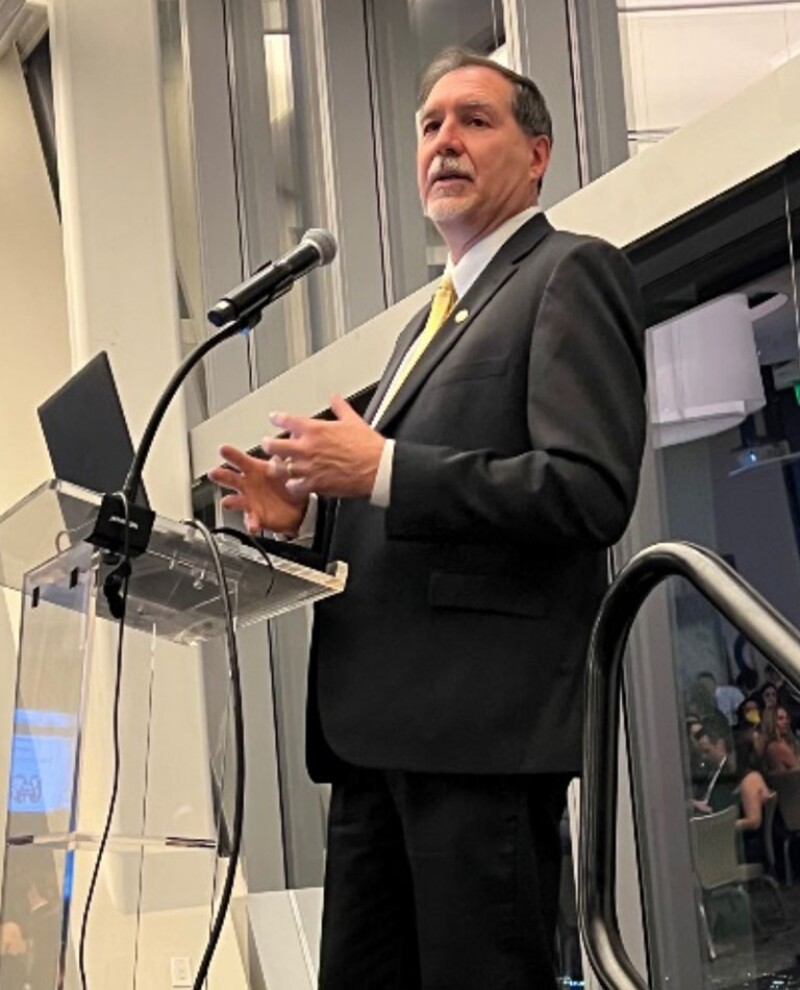
Thank you, Terry, for giving us a glimpse of your own career, your experience, and your experience over the years with SPE.
Terry will be doing monthly podcast episodes which you can find with transcripts on SPE’s Journal of Petroleum Technology website and in the monthly digital edition of JPT available on the 1st of each month.
In October’s episode, Terry, I believe you will share your thoughts about the evolution of the energy transition, what does the future of petroleum engineering look like, and how does SPE fit in.
I’m looking forward to it, and I just want to again thank everybody—the members and volunteers. I can’t tell you how excited I am when I meet people out in the industry and in our Society, and I hope that you will continue to volunteer and that together we can continue to create your and our energy future.

